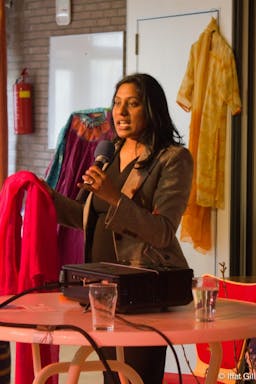ICTs and the case of young women of Pakistan
Jan 21, 2015
Story
Dear friends,
I am sharing the draft for my third assignment. Although it is too late to request for feedback and comments due to the deadline, I would still like to know what you think of it:
A close friend, 19 year old Nazira wore her best dress one evening. She came to show me her outfit before she went out to see ‘someone special’. Three hours later, she returned devastated; she could hardly speak. She wore a ‘burqa’ on top of the rags she now had on. Her rosy cheeks looked pale and eyes were sore. She was gang raped by the person she went to see and his friends. A male member from her family had seen her in that condition and now she was afraid to go back to her home. I gave her clothes and asked her mother to come pick her up. She was not allowed to leave her house following that incident.
Nazira got into a ‘relationship’ after a few casual chats via mobile phone with the person. He had pressurized her into seeing him. She agreed because she believed in his promise of marriage. It is still ambiguous how the call started. Spamming of mobile inbox with contact numbers available to chat started with the introduction of mobile phones in Pakistan. It has been an epidemic how SMS asking for ‘friendship’ circulate and how young people start interacting. The Pakistani youth seemed to have brought it to the level of instant chat messaging on the internet, not realizing the relentlessness of making your personal number public. This however, is more intrusive than the later.
The inability of the young people to interact freely with the opposite sex due to the social and cultural norms has taken a toll from the Pakistani society. The behaviour of young people has changed drastically over the past decade with the advent of modern tools of communication. It almost seems inevitable that the so called ‘friendship’ will be an intimate one as no other opportunities exist for socializing. But the unwary young women like Nazira have to learn through harsh way how this practice is putting them in danger of exploitation and violence.
But she did complain to me once about her phone number being shared with random people, whom she did not know.
What most people fail to realize is that the speed at which the modern communication tools has accelerated change. The young people seem to have a more emancipated approach in building new relationships with people they do not necessarily know. A change has occurred. The more time we take as a society ‘in transition,’ to come to terms with the new developments of the social landscape, the difficult it will get to undo the damage done to young lives. The social interaction between the young people is not new and girls eloped even before the introduction to mobile telephony and internet, but this has just become so much easier to communicate concerns and share frustrations. If steps are not taken to allow interaction within the existing set of social, cultural and religious norms of the Pakistani society, a violent change might be imminent and nothing would be able to stop it. Social norms and local traditions should step back as taking precedence in deciding the fate of the women as the level of empowerment fails to match with the rights given to them. It might be before time to say that these young people should be allowed to date officially. But the least that can be done is to facilitate these young women in making informed decisions.
The society needs to adapt to the swift changes in the technological and the personal landscape of its young population. This calls for the need to educate the young population about privacy and safety issues attached with the risks of their current behaviour. The situation has been somewhat under surveillance since the decision of Pakistan Telecommunication Authority to ban all unregistered sim cards and connections. It is illegal to be in possession of a SIM card which I in not registered in your name. This did assist in tracking of people who ‘prey’ on unsuspecting women, making it less difficult for them to hide their identity.
No one had educated Nazira about the pros and cons of interacting with strangers via the new technologies. An informed decision always supersedes an uninformed one. Therefore a country wide privacy campaign and outreach programs are needed to minimize the threats associated with it.




